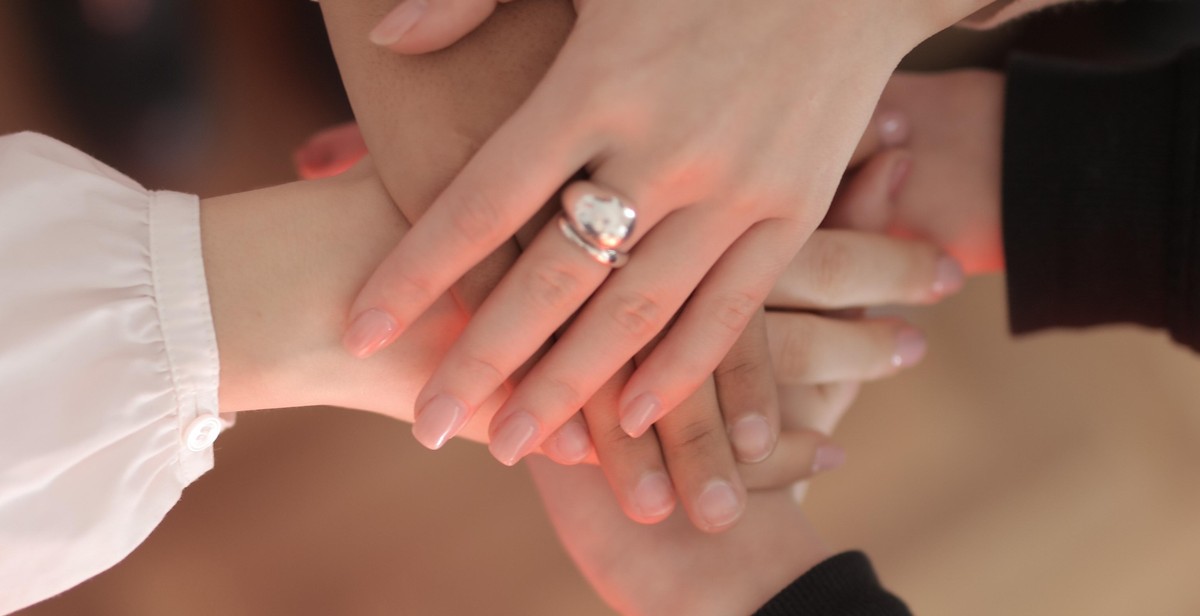The Art of Letting Go: Dealing with Relationship Regret
Relationships can be complicated and messy, and sometimes they don’t work out the way we want them to. When a relationship ends, it’s natural to feel a range of emotions, including sadness, anger, and regret. While it’s important to process these feelings and give yourself time to heal, it’s also crucial to learn the art of letting go.
Letting go of a relationship can be challenging, especially if you still have feelings for your ex-partner. However, holding onto regret and negative emotions can prevent you from moving forward and finding happiness in the future. It’s essential to acknowledge your feelings and take steps to address them, whether that means talking to a therapist, journaling, or practicing self-care.
In this article, we’ll explore the art of letting go and provide tips and strategies for dealing with relationship regret. We’ll discuss the importance of self-reflection, forgiveness, and acceptance, as well as how to set boundaries and focus on your own personal growth.
- Why letting go is important for your mental health
- The role of self-reflection in dealing with relationship regret
- The importance of forgiveness and acceptance
- How to set boundaries and focus on personal growth
By learning the art of letting go, you can move on from past relationships and create a brighter future for yourself.

Understanding Relationship Regret
Relationship regret is a common feeling experienced by individuals who have been in a romantic relationship that did not work out as they had hoped. It is the feeling of sadness, disappointment, and remorse that arises when reflecting on past relationship experiences.
What is Relationship Regret?
Relationship regret is a complex emotion that can manifest in different ways. It can be a feeling of regret for not having done enough to make the relationship work, or regret for not having ended the relationship sooner. It can also be a feeling of regret for not having made different choices in the relationship or for not having communicated effectively with the partner.
Relationship regret can be triggered by various events such as seeing the ex-partner with someone new, hearing about their success, or even just thinking about the past relationship. It can also be a result of comparison with other successful relationships or societal expectations of what a successful relationship should look like.
Why Do We Experience Relationship Regret?
Relationship regret is a natural human emotion that arises from our innate desire for connection and love. When a relationship ends, it can be difficult to let go of the emotional investment made in the relationship. The sense of loss and disappointment can lead to feelings of regret.
Additionally, relationship regret can be a result of our tendency to focus on the positive aspects of the relationship and to overlook the negative aspects. This can lead to idealizing the relationship and romanticizing the past, making it difficult to move on.
Furthermore, relationship regret can be a result of unresolved emotional issues from past relationships or childhood experiences. These unresolved issues can affect our ability to form healthy relationships and can lead to feelings of regret when a relationship ends.
- In the next section, we will explore the impact of relationship regret on our lives and how to deal with it.

The Negative Effects of Relationship Regret
Relationship regret is a common experience that can have both emotional and physical effects on an individual. The following are some of the negative effects of relationship regret:
Emotional Distress
Relationship regret can cause emotional distress, which can include feelings of sadness, anger, guilt, and shame. The individual may constantly replay the events leading up to the end of the relationship and wonder what could have been done differently. This can lead to a sense of hopelessness and despair, making it difficult to move on and find closure.
Furthermore, relationship regret can lead to low self-esteem and feelings of inadequacy. The individual may blame themselves for the end of the relationship and feel unworthy of love and affection. This can lead to a negative self-image and affect future relationships.
Physical Symptoms
Relationship regret can also have physical symptoms. The stress and emotional turmoil of regret can cause headaches, fatigue, and insomnia. The individual may also experience a loss of appetite or overeating as a form of emotional coping. These physical symptoms can further exacerbate the emotional distress caused by relationship regret.
In addition, relationship regret can lead to unhealthy coping mechanisms such as substance abuse or self-harm. These behaviors can have long-term negative effects on an individual’s health and well-being.
- Emotional distress
- Low self-esteem
- Feelings of inadequacy
- Headaches
- Fatigue
- Insomnia
- Loss of appetite or overeating
- Unhealthy coping mechanisms
Overall, the negative effects of relationship regret can be significant and long-lasting. It is important for individuals to seek support and healthy coping mechanisms to move forward and find closure.

The Art of Letting Go
Letting go of a past relationship can be a challenging and emotional process, but it is necessary for healing and moving forward. The art of letting go involves three key components: acceptance, forgiveness, and moving forward.
Acceptance
Acceptance is the first step in the art of letting go. It involves acknowledging that the relationship is over and that you cannot change the past. It is important to allow yourself to feel the pain and emotions that come with the end of a relationship, but also to recognize that these feelings will eventually pass.
Acceptance also means accepting responsibility for your part in the relationship’s end. It is important to reflect on what went wrong and to learn from any mistakes you may have made. This self-reflection can help you grow and become a better partner in future relationships.
Forgiveness
Forgiveness is the second step in the art of letting go. It involves forgiving both yourself and your former partner for any mistakes or hurtful actions that may have occurred during the relationship. Holding onto anger and resentment will only prolong the healing process and prevent you from moving forward.
Forgiveness does not mean that you have to forget what happened or reconcile with your former partner. It simply means that you are releasing the negative emotions and allowing yourself to find peace and closure.
Moving Forward
Moving forward is the final step in the art of letting go. It involves focusing on the present and future rather than dwelling on the past. This can involve setting goals for yourself, trying new hobbies or activities, or even meeting new people.
It is important to remember that healing takes time and that there is no set timeline for moving on from a past relationship. However, by practicing acceptance, forgiveness, and focusing on the future, you can find peace and happiness once again.

Practical Tips for Overcoming Relationship Regret
Relationship regret can be a daunting experience, but it is essential to overcome it to move on with your life. Here are some practical tips for dealing with relationship regret:
Practice Self-Care
Self-care is a crucial aspect of overcoming relationship regret. Take time to care for yourself by engaging in activities that make you feel happy and fulfilled. This could be anything from taking a relaxing bath to going for a run or spending time with friends. By taking care of yourself, you will be able to process your emotions and move forward with your life.
Seek Support
It is essential to seek support from friends, family, or a counselor when dealing with relationship regret. Talking to someone about your feelings can help you gain clarity and perspective on the situation. Additionally, a supportive network can offer you comfort and encouragement during this challenging time.
Focus on the Present
One of the most effective ways to overcome relationship regret is to focus on the present moment. Try to let go of the past and focus on the present. Engage in activities that bring you joy and fulfillment, and take time to appreciate the people and things in your life that make you happy. By focusing on the present, you can create new positive experiences that will help you move forward.
Create New Goals
Creating new goals and aspirations for yourself is an excellent way to overcome relationship regret. Think about what you want to achieve in the future and set realistic goals for yourself. This could be anything from learning a new skill to traveling to a new place. By focusing on your goals, you can create a positive outlook for your future and move on from your past relationship.
- Practice self-care by engaging in activities that make you feel happy and fulfilled.
- Seek support from friends, family, or a counselor when dealing with relationship regret.
- Focus on the present moment and engage in activities that bring you joy and fulfillment.
- Create new goals and aspirations for yourself to create a positive outlook for your future.

Conclusion
Letting go of a past relationship can be a difficult process, especially when regret is involved. However, it is important to remember that dwelling on the past can prevent us from moving forward and finding happiness in the future.
The art of letting go involves accepting the reality of the situation and acknowledging any mistakes that were made. It also involves forgiving yourself and your partner, and understanding that everyone makes mistakes.
It is important to take time for self-reflection and to focus on personal growth and development. This can involve seeking therapy or counseling, practicing self-care, and engaging in activities that bring joy and fulfillment.
Remember that it is okay to grieve the loss of a relationship, but it is important to not let it consume your life. Surround yourself with supportive friends and family, and seek out positive influences that will help you move forward.
Ultimately, the art of letting go is a process that takes time and patience. By focusing on personal growth, forgiveness, and self-care, you can move past relationship regret and find happiness in the present and future.
